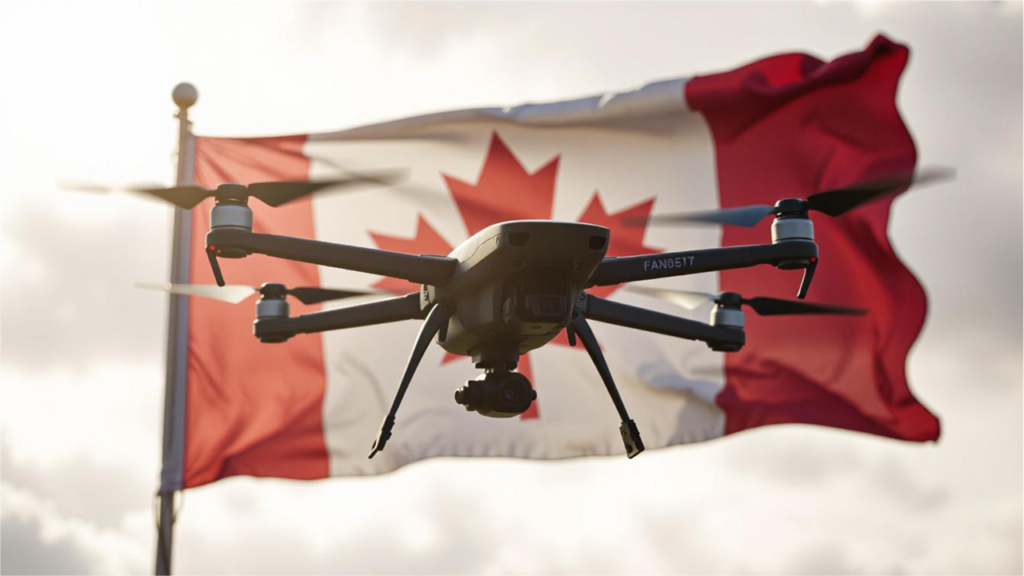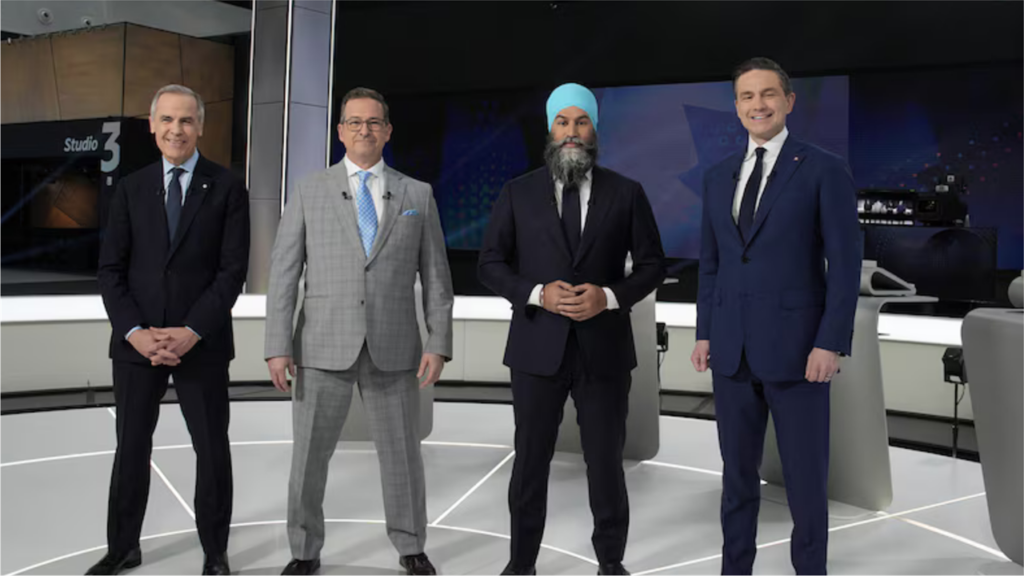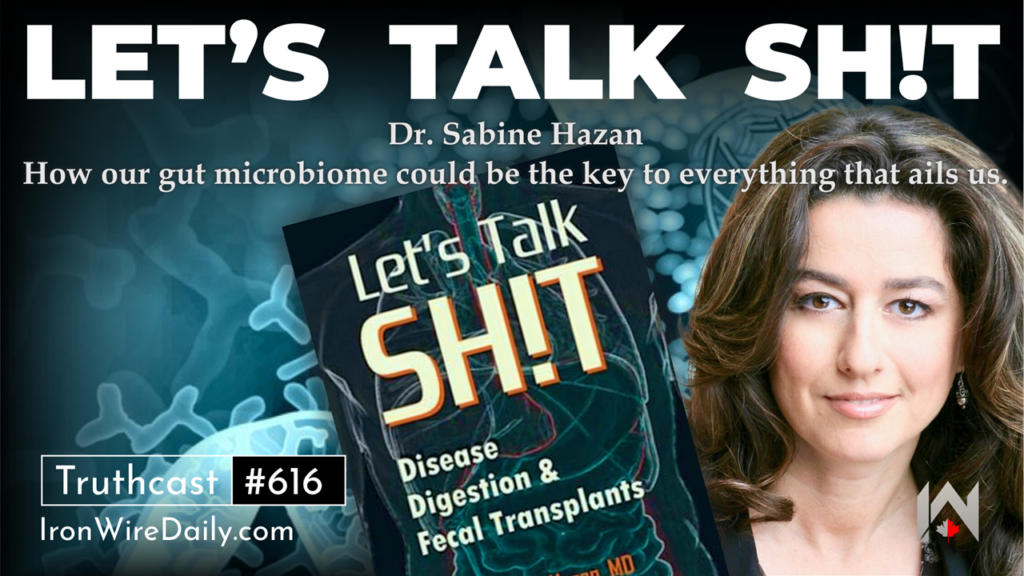NIH to Use Health Records From Public, Private Databases to Study Autism
Source: Children’s Health Defense
The National Institutes of Health (NIH) will use health records of Americans from multiple federal and commercial databases to study the causes of autism, the agency’s director, Dr. Jay Bhattacharya, said Monday.
During a meeting of NIH advisers, Bhattacharya said the NIH’s autism study will combine records from pharmacy chains, lab testing and genomics data from patients treated by the Department of Veterans Affairs and Indian Health Service, private insurance claims, and fitness tracking apps and smartwatches.
The NIH is also talking with the Centers for Medicare & Medicaid Services (CMS) about possibly accessing that agency’s patient data.
NIH launched the study — a “massive testing and research effort” to determine what causes autism — earlier this month, days before the Centers for Disease Control and Prevention (CDC) announced that 1 in 31 children had autism in 2022 — up from 1 in 36 children in 2020, and 1 in 1,000 children in the 1990s.
According to CBS News, NIH will also launch a new disease registry to track U.S. citizens with autism. The registry will be integrated into the autism study’s dataset.
Karl Jablonowski, Ph.D., senior research scientist for Children’s Health Defense, said data from multiple sources can help shed light on the factors contributing to the rising autism rates.
“Amassing disparate data to analyze autism risk could reveal some of the likely many causes,” Jablonowski said.
Research scientist and author James Lyons-Weiler, Ph.D., said the study “could potentially access several major health data repositories.” These include the U.S. government-run Vaccine Safety Datalink (VSD), state vaccination registries and data from several commercial sources.
Lyons-Weiler said much of this data was previously unavailable to researchers studying autism. “Many of the datasets have historically been restricted, especially to independent scientists asking inconvenient questions.”
Bhattacharya said the NIH wants to give researchers studying autism access to “comprehensive” patient records that cover a “broad range” of Americans and that will bring together previously siloed databases.
“The idea of the platform is that the existing data resources are often fragmented and difficult to obtain,” he said. “The NIH itself will often pay multiple times for the same data resource. Even data resources that are within the federal government are difficult to obtain.”
In an interview last month, U.S. Health and Human Services (HHS) Secretary Robert F. Kennedy Jr. said various sub-agencies of HHS withhold health data or sell it to each other. Kennedy said that when he requested data from CMS, an HHS agency, he was told HHS would have to purchase it.
Data will contribute to efforts to fight chronic disease epidemic
Bhattacharya said the data could provide benefits beyond studying autism’s causes, noting that it would help introduce “real-time health monitoring” that could be used to study other diseases and contribute to Kennedy’s Make America Healthy Again agenda to tackle the chronic disease epidemic.
“What we’re proposing is a transformative real-world data initiative, which aims to provide a robust and secure computational data platform for chronic disease and autism research,” Bhattacharya said.
Lyons-Weiler welcomed the effort. He said:
“Chronic illness, autoimmunity and neurodevelopmental disorders are exacting an enormous toll. We have the tools. We have the talent. We need institutional will, and we need accountability. Autism is important, but the fact that so many people end up on multiple drugs fighting multiple chronic illnesses is also a priority the Secretary [Kennedy] has promised to address.”
Earlier this month, Kennedy said the autism study will be completed by September. During Monday’s NIH meeting, Bhattacharya walked back those remarks, saying that the study would be “an evolving process.
However, he said NIH plans a “rapid timeline” for the autism research project once enough data has been obtained.
Bhattarcharya told reporters Tuesday that NIH will begin approving grants for the autism study by September. According to CBS News, 10 to 20 groups of researchers will receive grants and access to the data.
How accurate are media claims that personal health data will be accessed?
News of the NIH’s efforts to compile data from both government and commercial databases sparked claims by some news outlets that NIH and Kennedy would violate Americans’ privacy by seeking access to their personal health data.
According to The Guardian, the autism study will be “collecting Americans’ private medical records.” Newsweek reported that NIH’s plans to develop an autism registry have spurred a “backlash” — citing several posts by X users criticising the plan.
Several scientists dismissed these privacy concerns. According to Lyons-Weiler, the data NIH is compiling “would be subject to de-identification protocols” under the Health Insurance Portability and Accountability Act of 1996 (HIPAA). He said such data is “aggregated, pseudonymized or anonymized.”
Immunologist and biochemist Jessica Rose, Ph.D., said the anonymization of such data is “easy to do.” Rose said critical media reports are reflective of fears that the data “will reveal many, many interesting things, possibly even a link between vaccination and autism rates.”
Jablonowski cautioned that anonymized data “may be reidentified” if not handled carefully. “Medical and health information is among the most guarded information institutions collect, and for good reason — private medical information being made public could destroy lives.”
Large-scale leaks of personal health data may decrease public trust in healthcare, Jablonowski said. “People who do not trust their medical providers in keeping their information private may have a more guarded healthcare-seeking behavior — which could lead to worse health.”


This article was funded by critical thinkers like you.
The Defender is 100% reader-supported. No corporate sponsors. No paywalls. Our writers and editors rely on you to fund stories like this that mainstream media won’t write.
Health data in several government databases not publicly accessible
Kennedy has recently faced public criticism from a key former public health official — Peter Marks, M.D., Ph.D., the former director of the U.S. Food and Drug Administration’s (FDA) Center for Biologics Evaluation and Research , who resigned late last month in protest over Kennedy’s efforts to study vaccine safety.
In an appearance on CBS’ “Face the Nation” earlier this month, Marks criticized the autism study’s proposed timeline. “If you just ask me, as a scientist, is it possible to get the answer that quickly? I don’t see any possible way,” Marks said, adding that Kennedy was giving the public “false hope.”
In an interview with The Associated Press, Marks acknowledged that he refused to grant Kennedy unrestricted access to the Vaccine Adverse Event Reporting System (VAERS), a U.S. government-run database of vaccine injury reports.
According to Lyons-Weiler, Marks’ comments are “consistent with a broader pattern of non-transparency in vaccine safety research.”
“Data housed within federal health agencies or their proxies — such as VSD — are not publicly accessible in any meaningful sense. They are curated under cooperative agreements with a select group of HMOs that maintain privileged access without independent ethical oversight,” Lyons-Weiler said.
Rose said VSD is “a large, linked database that compiles electronic health record (EHR) data from participating sites, covering over 12 million people — approximately 3.8% of the U.S. population.” Access is limited to researchers with approval from their organization’s Institutional Review Board.
Lyons-Weiler said that VSD contains detailed data on vaccination and subsequent diagnoses that make the database “potentially indispensable” to a study of autism’s causes — and also “politically radioactive” for what the data may show.
In 2014, Dr. William Thompson, a CDC scientist-turned-whistleblower, leaked data showing the agency identified a link between the measles-mumps-rubella (MMR) vaccine and autism.
Thompson also described a pervasive culture of corruption at the CDC’s Immunization Safety Office — particularly concerning research about autism. The CDC did not act on Thompson’s claims.
Thompson’s allegations included claims of data exclusion and outcome manipulation in autism studies that utilized databases such as VSD.
“VSD has been used selectively in past studies, often behind closed doors and subject to internal CDC filtering,” Lyons-Weiler said.
In a recent analysis, Rose used CDC data, including the agency’s Autism and Developmental Disabilities Monitoring Network, and from private sources such as the Children’s Hospital of Philadelphia, to determine whether there was a correlation between autism rates and the number of vaccines in the CDC’s childhood schedule.
If you’re one of the people blowing off the autism data with “cool quips” like “correlation isn’t causation” then please replace your quips with DATA and solid empirical reasons for the uptick. And for the love of God, do not insult the universe’s collective intelligence by… pic.twitter.com/EBniYj3rtr
— Jessica Rose 🤙 (@JesslovesMJK) April 21, 2025
The data, which focused on vaccines containing aluminum adjuvants — which have been linked to autism — found a Pearson correlation coefficient of 0.8234. Values between 0.7 and 1.0 indicate a strong correlation between the variables studied.
Rose said the data NIH is compiling could prove such a correlation exists and show that vaccines “are at least partially causing autism.”
Recent articles in The Defender
- RFK Jr. Launches ‘Massive Testing and Research’ Into Autism Epidemic
- ‘Parents Have Waited for 30 Years’: NIH to Study Causes of Autism
- It’s Been 10 Years Since a Whistleblower Exposed the CDC’s Cover-up of the Link Between Vaccines and Autism. The Agency Has Done Nothing.
- 1 in 31 Kids Had Autism in 2022 — Up From 1 in 36 in 2020
- ‘Long-overdue Crack in the Dam’: RFK Jr. to Create CDC Sub-agency Focused on Vaccine Injuries
- Fact-Checking Peter Marks’ ‘Face the Nation’ Interview on Autism, Vaccines and Measles














